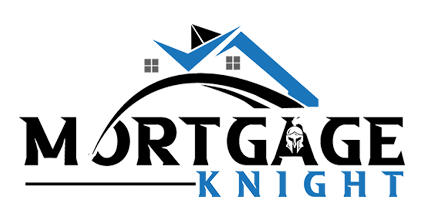Owning a home is a dream for many people in the UK. However, the hefty price tag that comes with purchasing a property can often be a major hurdle. For most individuals, taking out a mortgage is the only viable option for making this dream a reality. With the average property price in the UK hovering around £250,000, a mortgage of £170,000 is a common figure for many homebuyers.
Taking out a mortgage is a significant financial commitment, and the monthly repayments can have a substantial impact on one’s financial stability. Therefore, it is crucial to understand the ins and outs of mortgage repayments and how to manage them effectively. In this article, we will delve into the specifics of a £170,000 mortgage and explore the various factors that can influence the repayment process.
Understanding the Basics of a £170,000 Mortgage
A £170,000 mortgage is a substantial loan that enables individuals to purchase a property without having to pay the entire amount upfront. In the UK, mortgage repayments are typically spread over a long period, commonly 25 to 30 years, although shorter or longer terms are also available. The borrower agrees to pay back the loan amount, plus interest, in regular instalments over the agreed-upon term.
When considering a £170,000 mortgage, the interest rate plays a significant role in determining the overall cost of borrowing. The interest rate can either be fixed or variable, with each option having its own set of advantages and considerations. Fixed-rate mortgages offer stability and predictability, as the interest rate remains unchanged for a specified period, usually two to five years. On the other hand, variable-rate mortgages are subject to fluctuations in the market, potentially leading to changes in the monthly repayments.
Factors that Affect Mortgage Repayments
Several factors come into play when calculating mortgage repayments for a £170,000 loan. Understanding these factors is essential for prospective homebuyers to make informed decisions regarding their mortgage options.
1. Interest Rate: As mentioned earlier, the interest rate significantly impacts mortgage repayments. A lower interest rate translates to lower monthly payments, while a higher rate can result in higher monthly costs. Monitoring the interest rate trends and evaluating the pros and cons of fixed versus variable rates are crucial steps in securing a favourable mortgage deal.
2. Loan Term: The duration of the mortgage term also influences the repayment amount. A shorter repayment term typically leads to higher monthly instalments but lower overall interest costs. Conversely, a longer term results in lower monthly payments but higher total interest paid over the life of the loan. Homebuyers should carefully consider their financial situation and future outlook when deciding on the loan term.
3. Deposit Size: The size of the deposit put towards the property purchase affects the loan amount and, subsequently, the monthly repayments. A larger deposit can lead to a lower loan amount, reducing the monthly financial burden. This underscores the importance of saving up for a substantial deposit before venturing into homeownership.
4. Credit Score: The borrower’s creditworthiness plays a pivotal role in mortgage terms and interest rates. A strong credit score can lead to more favourable loan offers, potentially resulting in lower monthly repayments. On the other hand, a poor credit score may limit the options available and lead to higher interest rates.
5. Additional Costs: It’s crucial to consider additional costs associated with homeownership, such as property taxes, insurance, maintenance, and potential fluctuations in interest rates. These expenses can add up and should be factored into the overall budget to ensure financial stability.
Managing Mortgage Repayments
Given the significance of mortgage repayments, prudent financial management is essential for maintaining a healthy financial standing. Here are some tips for effectively managing mortgage repayments for a £170,000 loan:
1. Budgeting: Creating a comprehensive budget that encompasses all monthly expenses, including mortgage repayments, is crucial for financial stability. Prioritising essential expenditures and cutting down on discretionary spending can help ensure that mortgage payments are made on time, preventing potential financial strain.
2. Emergency Fund: Building an emergency fund to cover unexpected expenses, such as home repairs or medical bills, can provide a buffer against financial hardships and prevent the risk of missing mortgage payments.
3. Consider Overpayments: If financially feasible, making overpayments on the mortgage can help reduce the overall interest costs and shorten the loan term. However, it’s important to review the terms of the mortgage agreement, as some lenders may impose penalties for early repayment.
4. Seek Professional Advice: Consulting with a financial advisor or mortgage specialist can provide valuable insights and guidance on managing mortgage repayments. Understanding the available options, refinancing opportunities, and potential government schemes can help borrowers make informed decisions.
How Mortgage Knight Can Help with Your Mortgage Needs
Navigating the intricacies of mortgage repayments can be a daunting task for many individuals. However, with the right support and guidance, managing a £170,000 mortgage can be a smoother and more manageable process.
Mortgage Knight is a trusted and reliable mortgage broker in the UK, dedicated to assisting clients with all their mortgage needs. Whether you’re a first-time buyer, looking to remortgage, or seeking buy-to-let financing, Mortgage Knight offers personalised solutions tailored to your specific requirements.
Our team of expert advisors works tirelessly to secure the best mortgage deals for our clients, taking into account their unique financial circumstances and long-term goals. With access to a vast network of lenders and extensive industry knowledge, Mortgage Knight is well-equipped to find competitive interest rates and flexible repayment terms that align with your needs.
Contacting Mortgage Knight for mortgage assistance does not affect your credit rating, allowing you to explore your options without any adverse impact. With our commitment to transparency, integrity, and client satisfaction, we strive to provide a seamless and stress-free experience for every individual seeking mortgage support.
In conclusion, a £170,000 mortgage is a significant financial responsibility that requires careful consideration and strategic planning. By understanding the factors that influence mortgage repayments, implementing sound financial management practices, and seeking professional guidance, borrowers can effectively manage their mortgage commitments and work towards their homeownership aspirations.
At Mortgage Knight, we are dedicated to helping you navigate the complexities of mortgage finance and secure the best possible terms for your loan. Contact us today to discover how we can support you in achieving your homeownership goals without impacting your credit rating. Let us guide you through the mortgage process and empower you to make informed decisions that will shape your financial future.



